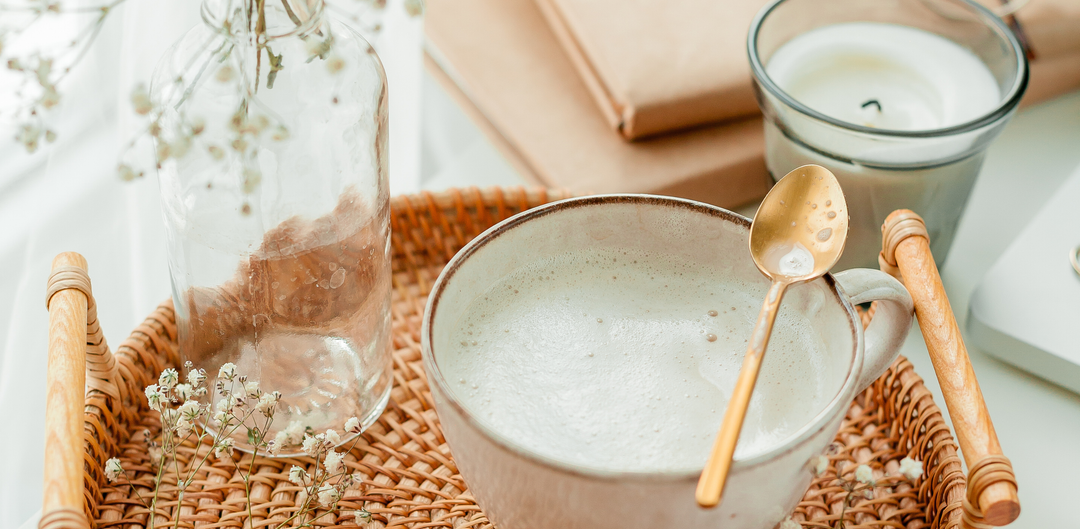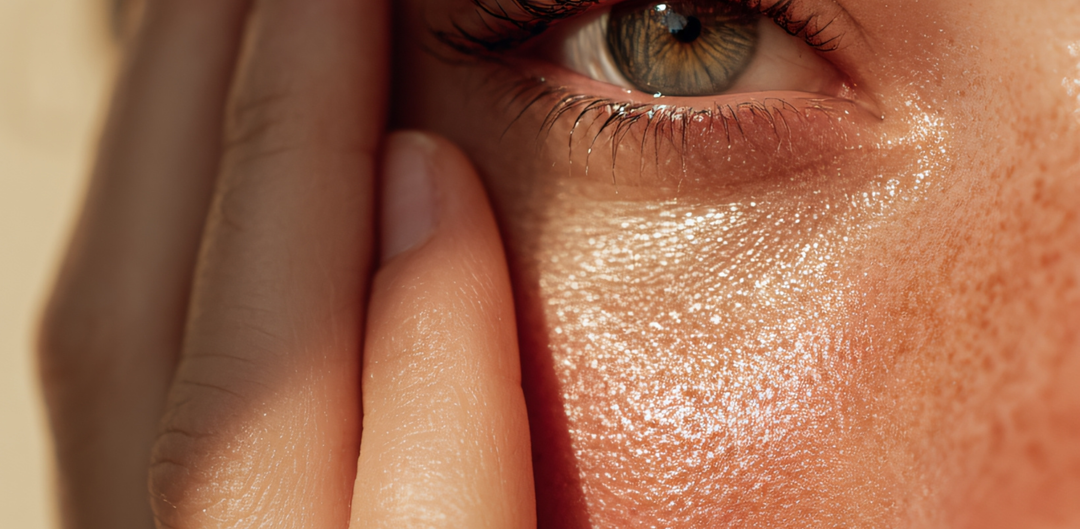Stress is an unavoidable part of life. Whether it stems from work, personal relationships, or unexpected events, stress can significantly impact our mental and physical health. When we experience stress, our bodies release cortisol, a hormone that prepares us to handle challenging situations. While cortisol is essential for our survival, chronic stress leads to prolonged elevated levels of cortisol, which can wreak havoc on our well-being.
High cortisol levels can result in a range of health issues, from anxiety and depression to digestive problems and weakened immune function. For your skin, elevated cortisol can exacerbate conditions like acne, eczema, and premature ageing, leaving your complexion looking tired and dull.
Fortunately, there are several natural ways to lower cortisol levels and mitigate the effects of stress. By incorporating these strategies into your daily routine, you can support your overall health and achieve a radiant, glowing complexion. Here are some effective methods to naturally reduce cortisol:
1. Prioritise Quality Sleep
Lack of sleep is one of the most common causes of elevated cortisol levels. Aim for 7-9 hours of quality sleep each night. Create a relaxing bedtime routine by reducing screen time, keeping your bedroom cool and dark, and using calming scents like lavender to signal to your body that it’s time to wind down.
2. Engage in Regular Physical Activity
Exercise is a powerful way to reduce cortisol levels. Regular physical activity helps to release endorphins, which are natural mood boosters. Aim for at least 30 minutes of moderate exercise, such as walking, swimming, or yoga, most days of the week. Even simple activities like stretching or a quick walk can make a significant difference.
3. Practice Mindfulness and Meditation
Mindfulness and meditation can effectively lower stress and cortisol levels. These practices help you stay present and reduce anxiety about the future or regrets about the past. Start with just a few minutes each day, focusing on your breath or a simple mantra. Gradually increase the time as you become more comfortable. If you have some extra time, taking either an in person or online (YouTube is great) sound bath can be a great way to practice mindfulness! Pop on an eye mask, a warm layer, and get ready to unwind.
4. Eat a Balanced Diet
What you eat can influence your cortisol levels. Foods high in sugar and refined carbohydrates can cause spikes in cortisol. Opt for a balanced diet rich in fruits, vegetables, whole grains, lean proteins, and healthy fats. Foods high in antioxidants, such as berries, dark chocolate, and green leafy vegetables, can also help combat the effects of stress. Lately, I have been loving making dates stuffed with peanut butter, coated in melted dark chocolate and sprinkled with flakey sea salt and chopped peanuts for the ultimate antioxidant sweet treat.
5. Stay Hydrated
Dehydration can increase cortisol levels. Make sure to drink plenty of water throughout the day. Herbal teas, such as chamomile or peppermint, can be particularly soothing and hydrating.
6. Connect with Loved Ones
Social support is crucial for managing stress. Spending time with friends, family, and pets can help reduce cortisol levels and improve your mood. Whether it’s a phone call, a coffee date, or a heartfelt conversation, connecting with others provides emotional support and strengthens your resilience. Going on a walk with a friend or pet is also a great way to get some movement in at the same time!
7. Incorporate Relaxation Techniques
Activities like deep breathing exercises, progressive muscle relaxation, or taking a warm bath can significantly reduce cortisol levels. These techniques help to activate the body’s relaxation response, counteracting the stress response.
8. Spend Time in Nature
Nature has a calming effect on the mind and body. Spending time outdoors, whether it’s a walk in the park, a hike, or simply sitting in your garden, can lower cortisol levels and improve your overall sense of well-being. Reading outside can also be very relaxing if you feel you want to simply sit outside, keeping you entertained without pulling out your phone.
9. Laugh More
Laughter truly is the best medicine. It reduces the physical effects of stress and lowers cortisol levels. Watch a funny movie, read a humorous book, or spend time with people who make you laugh.
10. Limit Caffeine and Alcohol
Both caffeine and alcohol can elevate cortisol levels. While moderate consumption may not be harmful, excessive intake can contribute to increased stress. Opt for herbal teas or decaffeinated beverages, and limit alcohol to occasional use. If you need a pick-me-up in the afternoon, try opting for matcha instead of coffee for a slower release energy boost without the jitters!
By incorporating these natural strategies into your daily routine, you can effectively lower your cortisol levels, reduce stress, and promote healthier skin. Remember, taking care of your mental and physical health is essential for achieving a radiant complexion. Embrace these habits and watch as your stress diminishes and your skin glows!
Implementing these stress-reducing techniques will not only help you manage your cortisol levels but also enhance your overall health and skincare routine. Lowering stress is a holistic approach to achieving beauty from the inside out.





